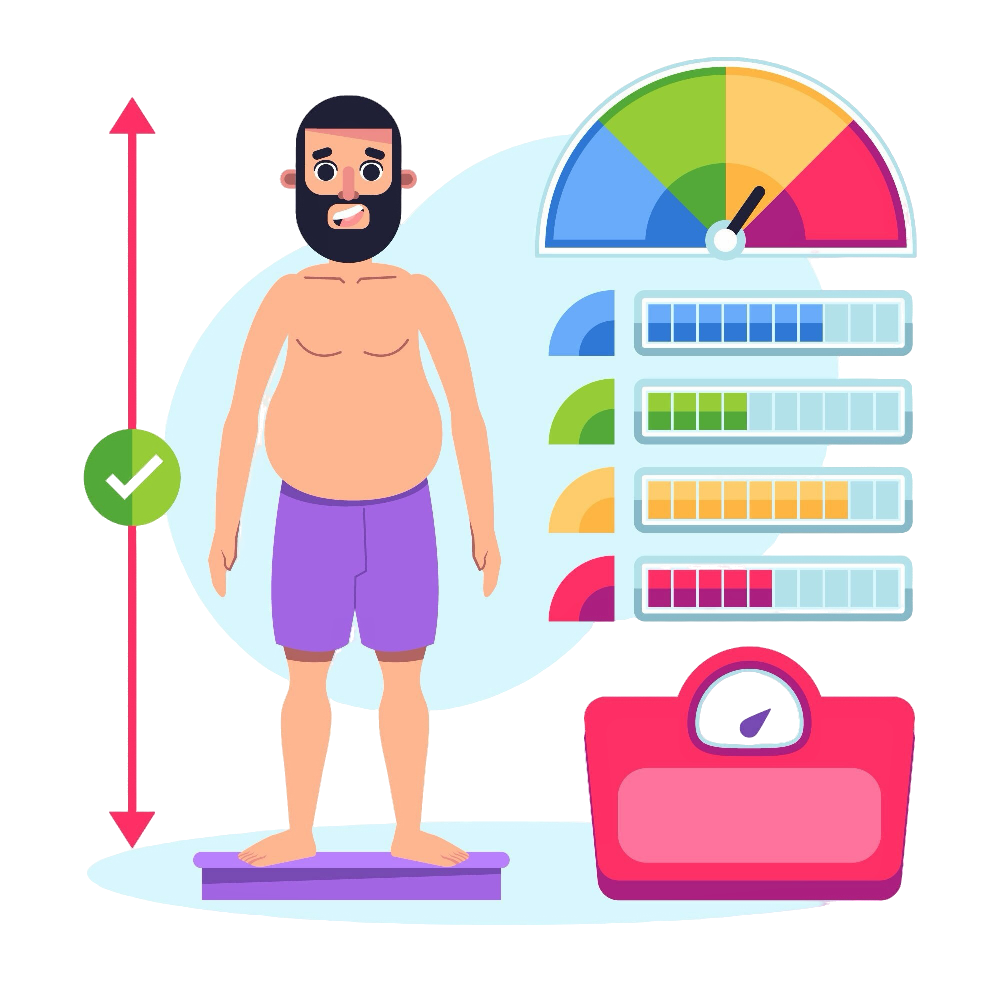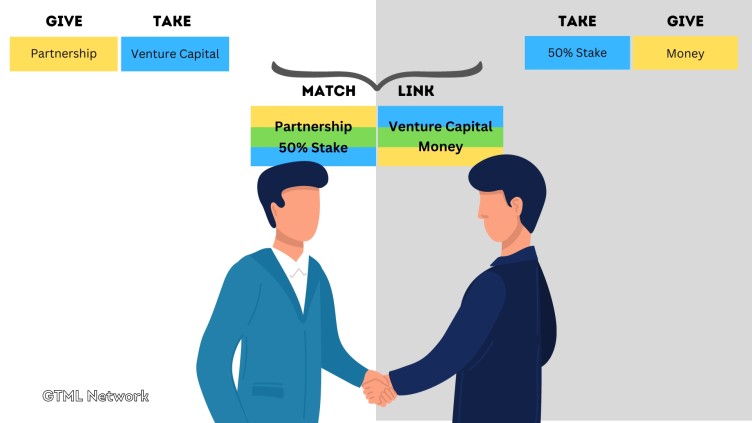- Losing weight is a matter of creating a calorie deficit, keep moving your body, and making healthier food choices.
- This article will break down the science behind weight loss without any bullshit.
- Because whatever I am going to tell you now, I have tried and tested it at least three times during my lifetime.

Table of Contents
My Story
I had recently got a new job. Here, the nature of job was more of a desk job. I was excited for my new role though and started working determinedly. But the mistake I made here was that I did not lower my food intake as now I was more stationery on my office chair the whole day. The consequence was a good performance at my job but with a more prominent belly and cheeks. I gained more than 5 kgs in just 1 month. I joined at September 2022 when my weight was 60 kgs and in October 2022 first week, I was standing more than 65 kgs. One fine day I saw myself in mirror and saw how my shirt precisely outlined my fat chest and bulging stomach. That was the day I decided to become leaner than before. I charged myself with a strong will power and started my weight loss journey from 20 October 2022. And soon, on 3rd Feb 2023, I saw myself lost 10 kgs. I did this in the span of 3.5 months. Of course, I had a few cheat days in between which used to spur my weight by 1 kgs. But I got myself soon on track again.
Science behind Weight Loss
Weight loss occurs when you consume fewer calories than you burn. Your body burns calories throughout the day, including when you’re sleeping, sitting, or exercising. The number of calories you burn is determined by your basal metabolic rate (BMR), which is influenced by factors such as your genes, age, gender, height, and weight. When you consume fewer calories than your body burns, your body starts to use stored fat for energy. Over time, this results in weight loss. To lose weight at a healthy rate of 1-2 kgs per week, you need to create a daily calorie deficit of 500-1000 calories. This can be achieved by reducing your calorie intake, increasing your physical activity, or a combination of both.
Factors that affect Weight Loss
Genetics
Your genetic makeup can influence your weight, metabolism, and the way your body stores fat. Some people are predisposed to carry more weight, and others may find it easier to lose weight. However, genetics only play a little role in weight loss if you are determined, and you have the power to control your weight through diet and exercise.
Hormonal Imbalances
Hormonal imbalances can also play a role in weight gain and weight loss. For example, imbalances in thyroid hormones can slow down your metabolism and make it more difficult to lose weight. If you suspect a hormonal imbalance is affecting your weight, it is important to speak with a doctor.
Stress
Chronic stress can lead to weight gain and make it difficult to lose weight. When you’re stressed, your body produces cortisol, a hormone that craves you to eat more and to have sugar. This extra intake stores fat in your abdominal area. Managing stress through exercise, relaxation techniques, and other stress-management strategies can help you maintain a healthy weight.
Sleep
Sleep is also an important factor in weight loss. When you don’t get enough sleep, your body produces more of the hormone ghrelin, which stimulates your appetite and makes you want to eat more. In addition, lack of sleep can reduce the production of leptin, a hormone that suppresses your appetite. Aim to get 7-9 hours of sleep each night to support weight loss.
1. Setting your Target
Google for “ideal body weight as per age, gender and height” and get an idea about what your ideal number should be. Once you know your ideal weight range, aim for the lowest threshold of that range. Now, calculate the difference of your current weight and ideal weight and then divide it into number 4. This is the number of months you should ideally require to reach your target in a healthy way. For example, your current weight is 72 kgs and your ideal weight is 60 kgs then the difference is 12 kgs. Now divide 12 with number 4 and you get 3. You will require around 3 months to be 60 kgs. This pace is healthier without risks of damaging your body. Don’t aim for too fast and rapid weight loss. It will take toll on your body.
2. Getting the Infrastructure
It is important to harvest the benefits of advanced technologies to assist you with our goals. Go and buy a digital weight machine and a subscription of weight loss apps such as Healthify.me, LifeSum, MyFitnessPal, etc. These apps are going to help you track your day-to-day calorie intakes. Stick to the routine of logging whatever you eat in that app. This will help you identify areas where you can reduce your calorie intake and make healthier food choices. This is an important step and skipping this will hinder your weight loss plan.
3. Creating a Calorie Deficit
- Reduce portion sizes: Most people tend to eat more than they need, which can contribute to weight gain. Reducing portion sizes can help you consume fewer calories and create a calorie deficit. An average person eats 3 times a day. If you eat three times a day like this: 100 + 100 + 100, then split this into 4: 50 + 50 + 50 + 50. This will help you to feel full with actually reduced intakes.
- Intermittent fasting: Follow Intermittent fasting for at least 16 hours. Don’t eat anything after 7 pm and before 11 am the next day. Because you need a long gap while you are asleep. This is the time your body will burn your fat without you ever noticing it. I have repeatedly lost more than 500 grams overnight. This is the power of intermittent fasting. This is the most powerful way of losing weight among all the ways I have mentioned here.
- Choose nutrient-dense foods: Now reducing so much in your food intakes leaves you very little margin. And then if you eat poor-nutrition foods, you are at risk of endangering your body with malnutrition and other cell damages. So, plan your meals wisely. Have enough protein and carbs with a focus on minimising fat intake. Carbs will help you to be energised for your exercise and protein will help you repair your cells after exercising. Example of nutrient-dense foods are foods that are high in vitamins, minerals, and fiber and low in calories such as fruits, vegetables, whole grains, and lean proteins.
4. Increasing Physical Activity
- Enjoy the exercise: Physical activity is important for weight loss, but it is also important to find an activity that you enjoy. This will make it easier for you to stick to a routine and maintain an active lifestyle. Join a dance or a yoga class. Go out for a trekking or participate yourself for a running marathon. The physical activity should rush up your dopamine instead of making you yawn.
- Resistance + Cardio = Success: Strength training is an effective way to build muscle and increase your metabolism. But this alone will not suffice. Pair strength training with cardio. My ideal workout routine is 1 hour of strength training following with 1 more hour of cardio which is running and walking for more than 2 kms. These two forms of exercise have given me the lean body which I was looking for. Certainly, I am not ripped as a body builder, neither I have 4 pack abs. Also, I don’t look like an athlete. But what I do have is a slim and lean body which is enough to boost my self-confidence for the time I maintain it. If your criteria of good looks is different and if you want to bulk up, then join a gym with a personal trainer. This is yet another domain so let’s keep this discussion for the other day.
- Keep moving throughout the day: Incorporating physical activity throughout the day can help you burn more calories. Try taking a walk during lunch, using the stairs instead of the elevator. Find excuses (but productive ones) to stand up from your office chair and to roam through your office premises. Try to make it a habit by scheduling it in your calendar or setting PC reminders.
5. Maintaining the Willpower
There will be times that you will have bad days at your office or at your home. You will be exhausted from over-exertion. You may get less sleep some days and will have headaches and depressed days. Or you may go through conflicts in love relations. All these surely have repercussions and you need to be well-prepared for this with a proactive approach. Your willpower has a direct connection with your physical well-being. Your bad days will crave you to have soda, to eat sugar, to eat chinese/junk food, to lay still and binge watch YouTube/Netflix. You will not feel motivated to eat less and do more. These are the moment of relapses. Be very alert on these moments and try to fight with your inner self. Maintain your willpower and you will thank yourself the very next day. All the best for your journey !




